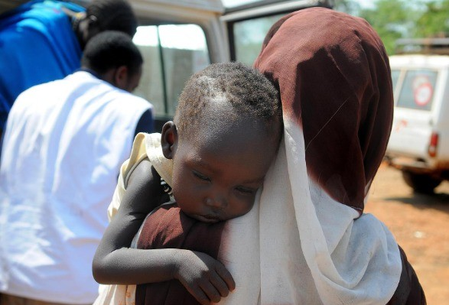Nairobi, Aug 9 (IANS) The World Health Organisation (WHO) certified Kenya as having eliminated human African trypanosomiasis, also known as sleeping sickness, as a public health challenge, making it the 10th country to reach this critical milestone.
“I congratulate the government and people of Kenya on this landmark achievement,” said WHO Director-General Tedros Adhanom Ghebreyesus in a statement issued in Nairobi, the Kenyan capital.
“Kenya joins the growing ranks of countries freeing their populations of human African trypanosomiasis. This is another step toward making Africa free of neglected tropical diseases,” Tedros added.
Human African trypanosomiasis is the second neglected tropical disease to be eliminated in Kenya, following the country’s certification as Guinea worm disease-free in 2018.
The disease is caused by protozoan parasites transmitted by infected tsetse flies, according to the WHO. Symptoms include fever, headaches, joint pain, and, in advanced stages, neurological symptoms like confusion, disrupted sleep patterns, and behavioral changes.
Aden Duale, Kenya’s cabinet secretary for health, said the WHO validation of sleeping sickness elimination marked a historic step toward enhancing public health security in the country, fostering economic growth.
Kenya detected the first case of sleeping sickness in the early 20th century and has since engaged in robust mitigation activities. The last two exported cases were detected in 2012 in the world-famous Maasai Mara National Reserve, Xinhua news agency reported.
In recent years, the country has enhanced sleeping sickness surveillance in 12 health facilities across six historically endemic counties, which serve as sentinel sites. This effort is complemented by the use of modern diagnostic tools and the training of personnel to avert new transmission.
Abdourahmane Diallo, the WHO representative in Kenya, said forward-looking leadership and partnerships were pivotal in accelerating progress toward sleeping sickness elimination in the East African country.
Human African trypanosomiasis, also known as sleeping sickness, is a vector-borne parasitic disease. It is caused by protozoans of the genus Trypanosoma, transmitted to humans by bites of tsetse flies (glossina) which have acquired the parasites from infected humans or animals.
Tsetse flies inhabit sub-Saharan Africa and only certain species transmit the disease. Rural populations which depend on agriculture, fishing, animal husbandry or hunting are the most exposed. In many regions where tsetse flies are found, HAT is not. The disease has a focal distribution ranging from single villages to entire regions, and the incidence can vary from one village to the next.
–IANS
int/jk/rad
Disclaimer
The information contained in this website is for general information purposes only. The information is provided by BhaskarLive.in and while we endeavour to keep the information up to date and correct, we make no representations or warranties of any kind, express or implied, about the completeness, accuracy, reliability, suitability or availability with respect to the website or the information, products, services, or related graphics contained on the website for any purpose. Any reliance you place on such information is therefore strictly at your own risk.
In no event will we be liable for any loss or damage including without limitation, indirect or consequential loss or damage, or any loss or damage whatsoever arising from loss of data or profits arising out of, or in connection with, the use of this website.
Through this website you are able to link to other websites which are not under the control of BhaskarLive.in We have no control over the nature, content and availability of those sites. The inclusion of any links does not necessarily imply a recommendation or endorse the views expressed within them.
Every effort is made to keep the website up and running smoothly. However, BhaskarLive.in takes no responsibility for, and will not be liable for, the website being temporarily unavailable due to technical issues beyond our control.
For any legal details or query please visit original source link given with news or click on Go to Source.
Our translation service aims to offer the most accurate translation possible and we rarely experience any issues with news post. However, as the translation is carried out by third part tool there is a possibility for error to cause the occasional inaccuracy. We therefore require you to accept this disclaimer before confirming any translation news with us.
If you are not willing to accept this disclaimer then we recommend reading news post in its original language.

